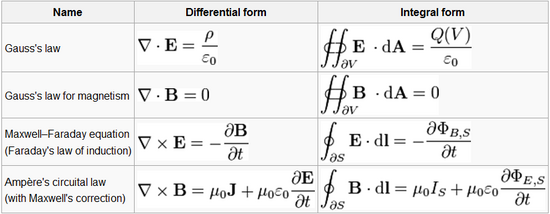There are many devout Jews and Christians who believe the universe is old. Unlike Darwinism, the presumption of an old universe has real support from science. Philosophically, something as grand and as powerful as the entire universe would reasonably seem to be eternal. Standard thermodynamics and the Big Bang hypothesis changed all that, and the age of the universe is no longer viewed as eternal. Perhaps God did not want us to believe the Cosmos is all powerful and eternal, but rather transient and passing. Thermodynamics tells us the stars cannot burn forever, and thus thermodynamics has left us evidence that the known cosmos is not eternal…
As much as Young Earth Creationists (YECs) hate the Big Bang, the Big Bang was a step in the YEC direction in that the universe became a lot younger in the view of mainstream science (from eternal to finite age). But to this day, YEC cannot be believed with the same level of conviction as other creationist ideas. Old Earth Creationists (OECs) would gladly accept YEC if science supported it, but the problem is the evidence in hand does not make a convincing case. The ID community has a very large OEC component.
So how is distant starlight a thorn in the side of YEC? The farthest we can use parallax to estimate the distance to stars is on the order of 400 light years. Beyond parallax, we can estimate distances based on the apparent brightness of stars. Dimmer stars are presumed farther away, and using some math and distances estimated using this method, we estimate some stars are on the order of several million light years away. See: http://en.wikipedia.org/wiki/Cosmic_distance_ladder
If the speed of light is constant over the age of the universe and constant at every location in the universe, then a straight forward calculation says the universe must be several million years old at least (if not billions).
Some will say, “the speed of light might have been faster in the past or have different speeds in various locations in the universe or both.” That’s all well and good, but where is the convincing evidence of this? There are only small threads of evidence for this. Here are some:
1. distant galaxies structurally look about the same age as galaxies close to us. If the speed of light were constant, we should see an evolutionary sequence of galaxies as we compare the farthest ones to the closest ones. The evolutionary sequence is missing. The distant galaxies look a little bluer, but structurally they look distressingly fully formed! This anomaly helps the YEC case but is not a slam dunk by any means.
2. The galaxies have preserved spirals that should have been erased by now because of rotation based on standard gravitational dynamics. Exotic solutions like dark matter and modified Newtonian dynamics (MOND) and even Carmeli cosmology have tried to resolve this, but they all suffer from difficulties of direct testability. Many YECs accept dark matter, but if the dark matter isn’t properly distributed, it won’t solve the erasure problem of spiral galaxies. This anomaly also helps the YEC case but is not a slam dunk by any means.

So, based purely on empirical observations, the YECs have a faint hope of resolving the distant starlight problem. But to have credibility, they will have to re-write the equations that govern the behavior of light. These equations were assembled by a creationist physicist, James Clerk Maxwell. These equations are called Maxwell’s equations which provide a classical description of the relation of light to magnetism and electricity.
Of these equations, Feynman said:
From a long view of the history of mankind – seen from, say, ten thousand years from now – there can be little doubt that the most significant event of the 19th century will be judged as Maxwell’s discovery of the laws of electrodynamics. The American Civil War will pale into provincial insignificance in comparison with this important scientific event of the same decade.
If God said, “let there be light” it also implies God must have said something like “let there be Maxwell’s equations”:

or the updated version where Maxwell’s equations are incorporated into Quantum Electro Dynamics:

or the updated version where Maxwell’s equations are incorporated into non-Euclidean spacetime under General Relativity:




These equations define the ability to build generators, motors, radars, radios, microwave ovens, fiber optic cables, cell phones, televisions, GPS, computers, space probes, satellites,… One might ask, “what devices don’t owe some debt to the above equations?” But these equations, combined with the fact of distant stars, imply the universe is old. The irony then is that it is the work of a creationist that has been the source of major rejection of YEC not just by the mainstream, but by other creationists.
How can we revise these sets of equations in a way that can be reconciled with current observations while simultaneously accounting for the ability to see distant stars in only six-thousand years? Unlike Darwinism, or paleontological ages, the problem of distant starlight is several orders of magnitude more difficult to deal with. The above equations were provided to give the reader an idea of the magnitude of difficulties YECs face with the distant starlight problem. One should not take the problem lightly! Hence, I’ve said I don’t find the YEC case convincing even though privately I hope it is true…
With such problems in mind, is there a scientific (not theological) middle ground for the YECs. I’ve suggested, YECs can make a good case by accepting for the sake of argument the universe is old, but arguing vigorously the geological timescales for the Phanerzoic era (about the last 500 million years) are wrong, and that emergence of life is relatively recent. Mainstream science can support such a view without re-writing Maxwell’s equations (and other theories tied to it, like special relativity). In fact mainstream physics and chemistry would support the view that the fossil record is recent if institutional imperatives were not causing such prejudicial interpretations. But too many mortgages rely on the old fossil narrative.
But unlike Darwinist paleontology which is supported by an institutional imperative, the distant starlight problem is rooted in data and some of the most solid theories in physics which make the modern high-tech world possible. YECs only have some sporadic anomalies like those mentioned above to cling to. Hence, I suggest there can be middle ground of accepting irresolution on some topics (like distant starlight) while vigorously arguing other topics like ID, criticism of evolution from population genetics, criticism of OOL, criticism of evolution from irreducible complexity, and criticism of the mainstream paleontological dates. At this time, however, the distant starlight problem remains a thorn in the side of YEC.
NOTES
1. There is some controversy over supposed 12% error in parallax measurements. See Pleiades controversy.
2. YEC have proposed solutions to the distant starlight problem. There are about 5 cosmologies proposed.
A. Last Thursday solution. Light was created in transit to make the universe look old even though it is young. Advocated by Duane Gish and Josh McDowell. I find this solution the most revolting, even though I revere Gish, I think he was wrong on this one.
B. Decaying speed of light, suggested by Barry Setterfield. The problem is then we have to vary Planck’s constant to agree with the famous formula for energy of a photon
E = h ν
Varying planck’s constant? Planck’s constant governs thing like the atomic radius, so maybe we don’t want to go there! Changing the speed of light over time — affects atomic processes like radioactivity and stellar fusion. The Earth could be incinerated as a result of fast decay. Painful for me to say all this because Setterfield is a dear friend, but this is tough love criticism…
There are modern secular cosmologies that invoke decaying speed of light, but that won’t necessarily help YEC at this time.
C. White hole solution to General Relativity by Humphrey’s. No comment, yet.
D. Carmeli cosmology by Hartnett. No comment yet, save to say Hartnett is very sharp, is a professional physicist, and is highly respected in his field.
E. Revised Maxwell’s equations by Lucas. Lucas cites Hooper’s experiments which are refuted, and then he referred me to developments by Lutec as “proof” of his new electromagnetism.
But Lutec looks like a fraud! 😯
http://beforeitsnews.com/free-energy/2011/08/lutec-waning-in-free-energy-drive-961089.html
As you are aware there are still question marks over Lutec who are still advertising for investors with no discernible or proven results of their device despite 11 years having passed since they first announced their “success” with their magnetic motor.
A friend of a close colleague of mine who is an electronics expert, visits them from time to time but despite their claims, has so far has been unable to verify the capability of the device. They have attracted a few investors but after 12 years, there is no confirmation that it actually works.
They are still advertising for money and one of our friends was approached to put in $100,000 and he said he would, if they will allow him to test it but they won’t allow him to use independent witnesses with their own instruments.
😯
Lucas then criticized the photoelectric effect, and then I countered with, “what about the Balmer an Lyman series or any other observation that suggests quantized energy levels in atoms?”
After Lucas’ referral to Lutec, I promptly ceased seriously considering anything he’s had to say. Neither Lucas nor his followers appeared at ICC 2013. Creationist Danny Faulkner and John Hartnett went ballistic at ICC 2008 when Lucas work was presented. Anyway, for what it’s worth here is Lucas’ ideas:
http://www.commonsensescience.org/survey/popups/universal_force_law.html
for constant velocity frames
.jpg)
and for accelerating frames

3. photo credits
http://scitechdaily.com/images/new-view-of-spiral-galaxy-IC-342.jpg
http://upload.wikimedia.org/math/0/e/f/0ef7214b5093dbe29546f6ae93f97e51.png
http://upload.wikimedia.org/math/0/e/f/0ef7214b5093dbe29546f6ae93f97e51.png
http://upload.wikimedia.org/math/d/3/a/d3a412c7fdfe97360840f4d1a90ba478.png
http://upload.wikimedia.org/math/0/8/7/08700e68e7624be4a3d99d01f8c7610c.png
http://upload.wikimedia.org/math/0/5/b/05b356cc7d3b744a83d437d76b428d0a.png
http://upload.wikimedia.org/math/0/e/5/0e5c19ac003480b6a55d4aa1e385165d.png
http://www.commonsensescience.org/survey/images/force_relativistic(verysmall).jpg
http://www.commonsensescience.org/survey/images/force_radiation(verysmall).jpg